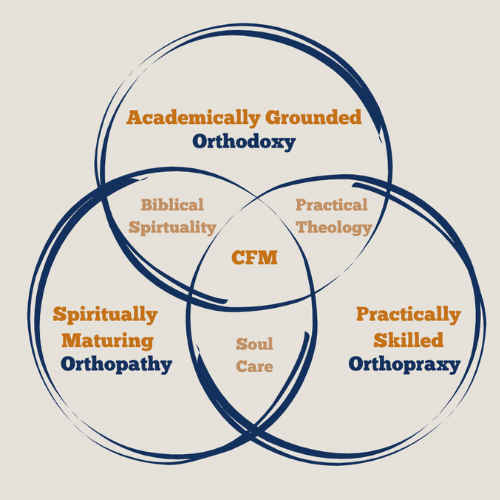For Current Students

CFM's Nine Learning Outcomes
By the end of the Christian Formation and Ministry degree, students will be able to...
| Academically Grounded | Spiritually Maturing | Practically Skilled |
|---|---|---|
|
A1. Articulate a biblical, theological, historical, and philosophical perspective of formation and ministry. |
B1. Demonstrate a life of discipleship and spiritual growth as the foundation of effective ministry. |
C1. Minister and teach effectively, integrating theory and scripture into creative practice with integrity, humility, and grace. |
|
A2. Identify a theoretical framework for ministry context analysis. |
B2. Identify one’s gifts and calling, responding to areas of strength and challenge in preparation for serving the needs of the church and the world. |
C2. Serve collaboratively and compassionately, balancing the needs of others with adequate self-care. |
|
A3. Demonstrate an understanding of the educational, spiritual, and ministry practices by which people mature in Christ. |
B3. Respect every person, valuing the diversity of cultures, ethnicities, and traditions within the church. |
C3. Demonstrate the necessary skills of a ministry practitioner/ scholar: critical analysis; oral communication; written communication; program evaluation. |
Educational Resources for CFM Students
- Practicum and Internship Forms
- CVC - Use the Center for Vocation and Career to identify possible internship/practicum locations and assist in your job search.
- APA Formatting Guide
- Library Research Guides (CFM)
- CFM 224 Research Guide (Christian Spiritual Practices)
Consider Adding a Certificate
CFM offers several certificates that can be added to your degree regardless of major.